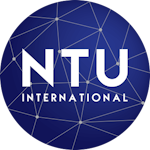NTU in the Home Affairs & Migration Sector
Migration environment is shaped by continued effects of long-term trends and drivers. Positive developments in the migration sector are hampered by various challenges, including deficiencies in regulatory and legal systems at the national, regional, and international levels, as well as the lack of streamlined international financing for sustainable development. These obstacles exacerbate migration-related issues, such as growing economic and demographic imbalances, brain drain, border security concerns, cross-border crimes such as human trafficking and illicit financial flows, insufficient capacities of host communities, human rights vulnerabilities, climate change, and usage of migration as a means of hybrid aggression. Modern challenges like climate change demand sustainable solutions in line with international strategic frameworks. For instance, addressing climate change requires adherence to initiatives like "A Better Tomorrow for People and Planet," the Paris Agreement, the UN’s Agenda 2030, and its Sustainable Development Goals.
At NTU, we believe that migration-related challenges must be addressed through a human rights-based approach that emphasises equality and inclusivity. NTU places special focus on key aspects of migration policies and regulations, which should be developed comprehensively to address the diverse, interconnected issues in the sector. These include enhancing legal migration, addressing irregular migration and forced displacement, managing remittances, engaging with diasporas, promoting migrants’ integration, combating cross-border crimes, ensuring migrants’ safety, and supporting host communities among others. We recognise that legal migration and mobility hold significant potential for fostering economic and social development, whereas irregular migration and forced displacement can pose substantial challenges for communities and countries of both origin and destination.
Team Europe's approach to the sustainable development of the migration sector emphasises the involvement of multiple stakeholders to ensure coordinated actions, foster the exchange of best practices, and integrate lessons learned. Additionally, the Global Gateway Strategy, developed by the EC, is tailored to the specific needs of the migration sector, leveraging a combination of financial resources and expertise from Team Europe, international partners, and the private sector. This collaborative framework enables a holistic and effective response to migration-related challenges. For example, the private sector plays a crucial role in enhancing labour migration pathways, supporting migrants' economic integration, and creating inclusive opportunities for sustainable development. NTU adopts this approach by collaborating with a wide range of actors, including international organisations (e.g., EU, IOM, UNHCR), development cooperation agencies (e.g., AFD, GIZ), development finance institutions (e.g., EIB, AfDB, ADB), governments, NGOs, civil society, and the private sector to promote social safeguards and support safe, orderly, and regular migration.
NTU also aligns its approaches and actions with evolving EU law, particularly in light of the adoption of the EU Pact on Migration and Asylum, which updates EU objectives, principles, and fields of action in the migration sector. The Pact reflects key principles of effective, humanitarian, and safe European migration policy, as well as increasing solidarity between Member States. NTU, through its proposals, methodologies, and implementation strategies, is committed to contributing to the development of EU migration policy.
In addition, NTU´s multicultural and gender-balanced teams possess extensive experience in conducting policy and programming studies on migration matters. We have successfully implemented regulatory, institutional, capacity-building, and technical support programs within the sector. Our expertise also includes conducting evaluations and delivering actionable recommendations to ensure that projects uphold and promote social safeguards. We are dedicated to advancing progressive migration governance and providing technical assistance to enhance migration management policies and practices. At NTU, we emphasise the importance of protecting migrants' rights and promoting their well-being, including fostering their effective integration, ensuring access to health and social services, raising awareness of their rights, and enabling informed decision-making. We believe that collecting, analysing, and disseminating migration data are crucial for developing evidence-based policies and practices that effectively address the needs of both migrants and host communities.
NTU Home Affairs & Migration Services
Migration and Mobility
- Labour migration
- Student and researcher mobility programmes
- Migrant support and integration services
- Protection and advocacy for vulnerable migrants
- Combating smuggling of migrants
- Support to integrated border management
- Human trafficking prevention and protection services
Migration governance and management
- Support for dialogue on migration and forced displacement
- Support to global processes, such as the Global Compact of Refugees
- Root cause mitigation services for irregular migration and forced displacement
- Protection and legal support services for refugees and internally displaced persons
- Administrative capacity building for strengthened migration governance
- Analysis of root causes of irregular migration and forced displacement
Research and Knowledge Management
- Support research in migration and home affairs topics
- Bridge the gaps between policymakers, practitioners, and researchers
- Data collection and analysis of migration and forced displacement-related data
- Dissemination of knowledge, promoting evidence-based decision-making
Policy and Strategy Development
- Multi-stakeholders Policy dialogue processes on migration
- Legal analyses and proposals for draft legislation delivering
- Evidence-based practice solutions for migration sector development
- Exploring prospects for migration sector development
Advocacy and Communication
- Diaspora engagement
- Awareness raising and visibility activities on the risks of irregular migration
- Knowledge exchange and field mission’s organisation and delivering

